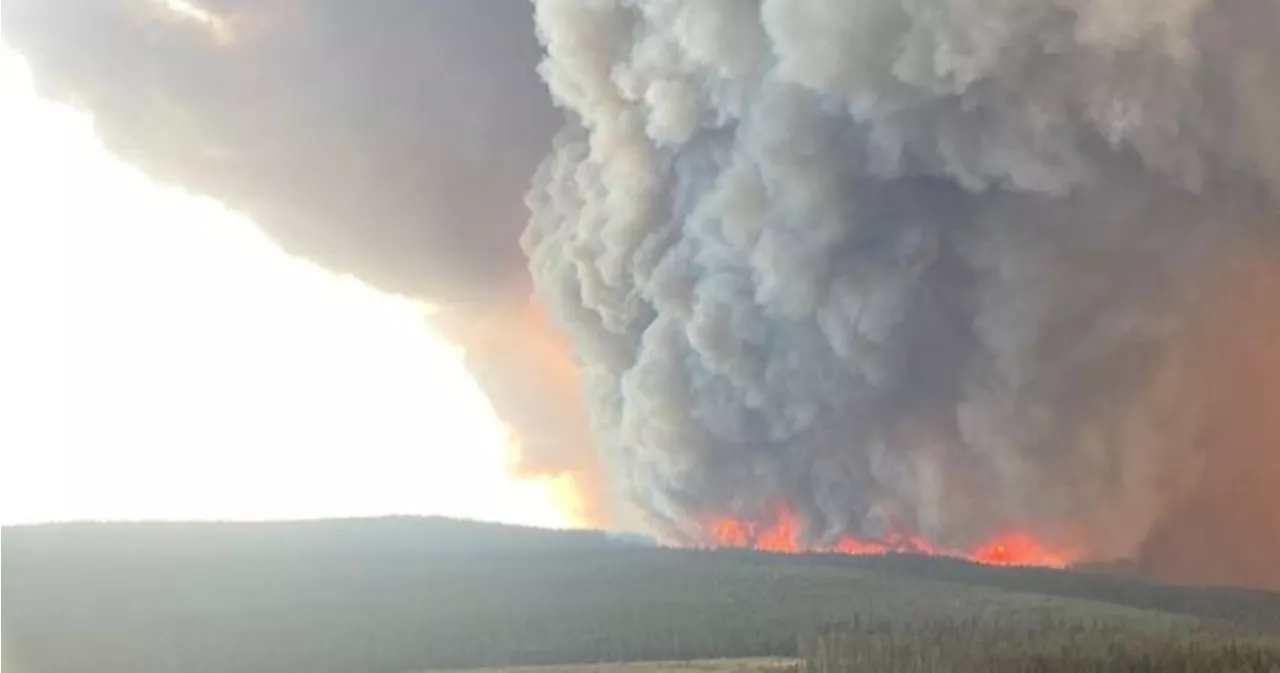A new study reveals a concerning increase in high-severity fire days across Canada from 1981 to 2020, indicating a more challenging fire season under climate change. The study highlights an average of two additional days conducive to high-severity fires per year between 2000 and 2020 compared to the previous two decades. This trend suggests that Canada's record-breaking 2023 wildfire season may be a glimpse into the future. The study identifies dry fuel as the primary driver of fire severity, while weather conditions, particularly in northern regions, play a more significant role.
, a study published Thursday said, underlining what the authors described as a pressing need to proactively mitigate the “increased threat posed by climate change .”
Co-author Xianli Wang, a research scientist with the Canadian Forest Service, says there were on average an additional two days conducive to high-severity fires in 2000 to 2020, compared to the previous two decades. In some areas, it was closer to five days. When it comes to the geographic distribution of severe wildfire, Wang said the findings suggest Canada’s record-breaking 2023 season was not an aberration, but a “glimpse into the future.”The study suggests the major environmental driver of fire severity was dry fuel, such as twigs and leaves, while the effect of weather – such as hot, dry and windy conditions – was more pronounced in northern regions.
The greatest increase in burn severity days was recorded in an area covering northern Quebec and an area covering Northwest Territories, northwest Alberta and northeast British Columbia.
Climate Change Wildfires Canada Fire Season Environmental Impact
Canada Latest News, Canada Headlines
Similar News:You can also read news stories similar to this one that we have collected from other news sources.
 B.C. sees 155 toxic drug deaths in October, lowest monthly total since 2020The BC Coroners Service says that 155 people died of unregulated toxic drugs in October, averaging about five deaths per day across the province.
B.C. sees 155 toxic drug deaths in October, lowest monthly total since 2020The BC Coroners Service says that 155 people died of unregulated toxic drugs in October, averaging about five deaths per day across the province.
Read more »
 Canada sees drop in number of family physicians for the first time in decades, study findsCanadian Institute for Health Information report also finds that the average family doctor saw fewer individual patients in recent years than they did 10 years ago.
Canada sees drop in number of family physicians for the first time in decades, study findsCanadian Institute for Health Information report also finds that the average family doctor saw fewer individual patients in recent years than they did 10 years ago.
Read more »
 Mayor wants B.C.'s South Asian Heritages Museum built in SurreyFirst pitched in 2020, the museum or cultural centre would be a first in Canada
Mayor wants B.C.'s South Asian Heritages Museum built in SurreyFirst pitched in 2020, the museum or cultural centre would be a first in Canada
Read more »
 Canada Sees Rent Growth Slow, Largest Purpose-Built Rental Supply Increase in DecadesCanada experienced a significant slowdown in rent growth this year, coinciding with a record surge in purpose-built rental housing supply.
Canada Sees Rent Growth Slow, Largest Purpose-Built Rental Supply Increase in DecadesCanada experienced a significant slowdown in rent growth this year, coinciding with a record surge in purpose-built rental housing supply.
Read more »
 Canada Sees First Decline in Family Doctors Since Mid-1990sNew data reveals a worrying trend in Canada's healthcare system: for the first time since the mid-1990s, the number of family physicians has decreased. This decline, coupled with a growing and aging population, further strains the already overburdened primary care system.
Canada Sees First Decline in Family Doctors Since Mid-1990sNew data reveals a worrying trend in Canada's healthcare system: for the first time since the mid-1990s, the number of family physicians has decreased. This decline, coupled with a growing and aging population, further strains the already overburdened primary care system.
Read more »
 Ex-Bank of Canada Official Sees Key Rate Hitting 2.75% SoonFormer Bank of Canada Deputy Governor Paul Beaudry expects policymakers to cut their key interest rate until it hits at least 2.75%, with the path beyond that point less clear.
Ex-Bank of Canada Official Sees Key Rate Hitting 2.75% SoonFormer Bank of Canada Deputy Governor Paul Beaudry expects policymakers to cut their key interest rate until it hits at least 2.75%, with the path beyond that point less clear.
Read more »
